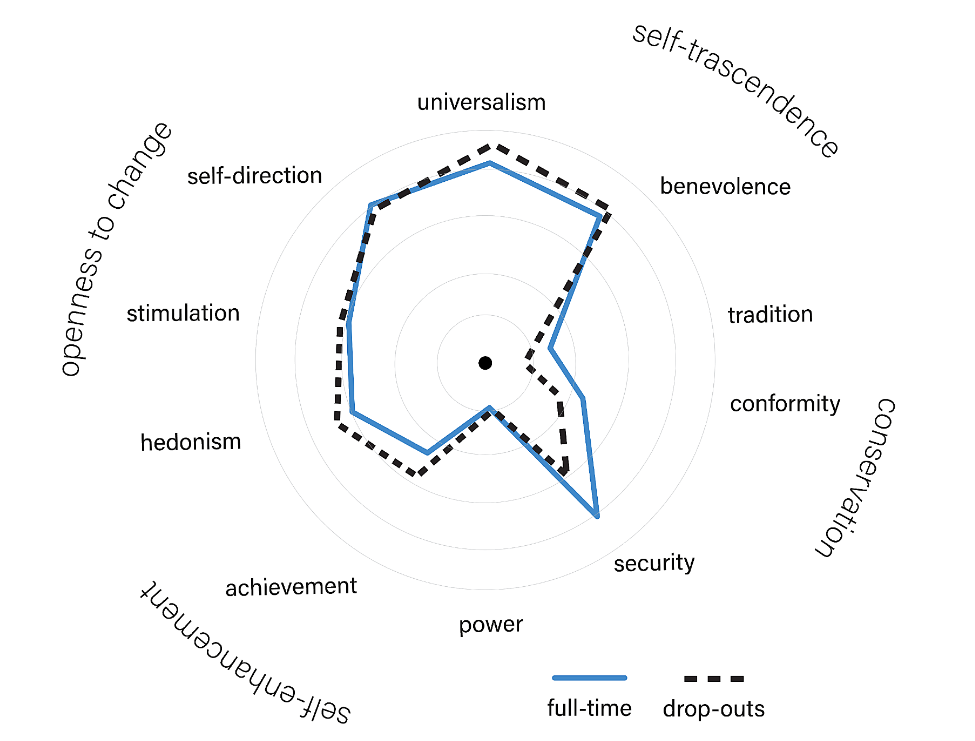Sustained participation is critical to the success of digital citizen-science initiatives
01 May 2022 · 2 min read Figure: SENSEI initiative participant values (Palacin et al. 2021)
Figure: SENSEI initiative participant values (Palacin et al. 2021)
A while back, I had the opportunity to contribute to a research project where my good colleague Dr. Victoria Palacin led an investigation into what values (as defined by Schwartz values theory) motivate activity and sustained participation in digital citizen science initiatives. It was found that self-transcendence, security, and openness-to-change values influence the participation and use of digital citizen science tools. More specifically, value orientations are linked to usage patterns, where people with a stronger openness-to-change (OTC) value tended to use the mobile application to check others’ submissions and people with stronger security values mostly used the application when they had something relevant to submit.
In the future, deeper understanding of people’s value orientations can contribute to the design of incentive mechanisms, understanding the user experience of online communities, and inform the design of digital citizen science technologies.
Additionally, the co-design process for the initiative, led by Dr. Palacin, was exemplary in my opinion. If you are interested in how to design together with communities or find citations to the design principles, I recommend having a look.
Read More
An open access version of the paper is available in (ScienceDirect open access).
Abstract
Sustained participation is critical to the success of digital citizen-science initiatives, yet much of the current literature focuses on mapping people’s motives to engage without considering the extent to which participation is sustained over time. We conducted a year-long experimental study (n=85) “in the wild” to explore the effects of human-value orientations on the use of digital citizen-science tools. Participants took part in both the co-design and use of many digital citizen-science tools in Lappeenranta, Finland from 2018–2019. Our statistical analysis finds evidence of relations between value orientations, sustained participation, and the number and quality of digital interactions. Specifically, we find that value orientations are linked with different usage patterns. For instance, people with a stronger openness-to-change (OTC) value tended to use the mobile application to check others’ submissions, even when they had nothing to submit, whereas people with stronger security values mostly used the application when they had something relevant to submit. Further understanding the influence of human values in digital citizen science is a promising area for future research that could contribute to a) guide the design of incentive mechanisms, b) understand user experiences in online communities, and c) inform the design and evaluation of digital citizen-science technologies.
Reference and authors
Palacin, V., Ferrario, M. A., Hsieh, G., Knutas, A., Wolff, A., & Porras, J. (2021). Human Values and Digital Citizen Science Interactions. International Journal of Human-Computer Studies, 102605. (ScienceDirect open access) | DOI: 10.1016/j.ijhcs.2021.102605